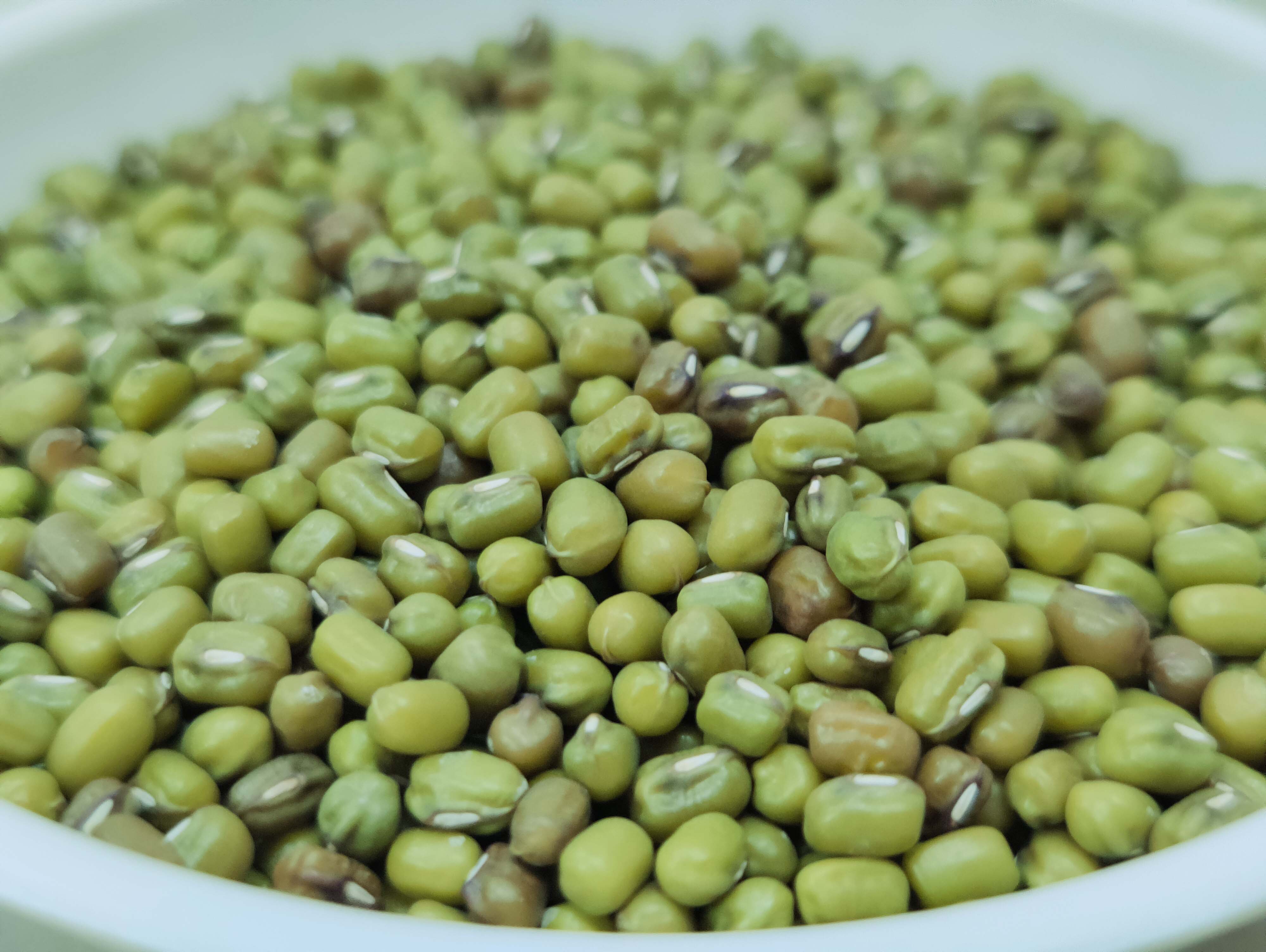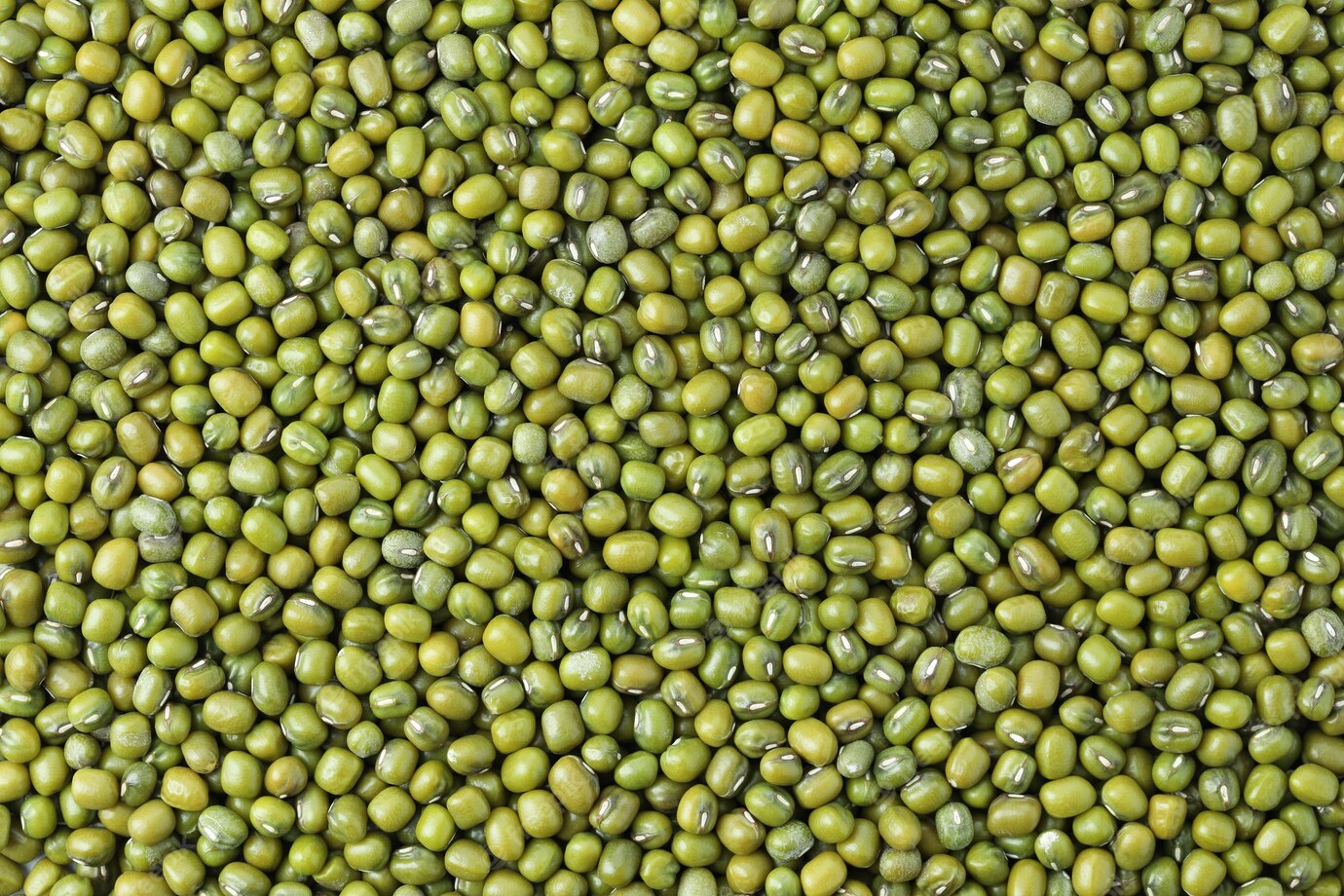Mung
Mung, also referred to as green gram or moong, is a type of small, green legume cultivated primarily in Asia. It is highly valued for its nutritional content and health benefits. The whole mung beans have a mild flavor and are commonly used in soups, stews, and salads.



growing conditions

Climate
Mung beans prefer warm weather and grow best in temperate to tropical climates. The optimal temperature range for growth is between 25°C to 35°C

Watering
Mung beans require moderate watering. Overwatering can lead to root rot, while under-watering can hinder growth. The crop needs sufficient moisture during germination and flowering stages.

Soil
Mung grows well in well-drained, loamy, or sandy soils. It thrives in soils. The soil should be rich in organic matter for better yield.

Planting
Mung beans are typically sown in rows at a depth of about 2-5 cm and should be spaced adequately to allow for growth. They can be grown in spring or summer.

Harvesting
Mung beans are usually ready for harvest about 60 to 90 days after planting, depending on the variety. They are harvested when the pods are dry, and the beans rattle inside.
Nutritional facts(100 gm)
- Calories: 347 kcal
- Carbohydrates: 62.6 grams
- Fiber: 16.3 grams
- Protein: 23.9 grams
- Fat: 1.2 grams
- Vitamin C: 4.8 mg
- Iron: 1.9 mg
- Magnesium: 189 mg
- Phosphorus: 367 mg
- Potassium: 1246 mg
- Vitamin B3 (Niacin): 2.0 mg
- Vitamin B1 (Thiamine): 4.8 mg









